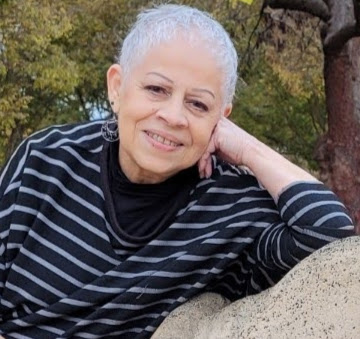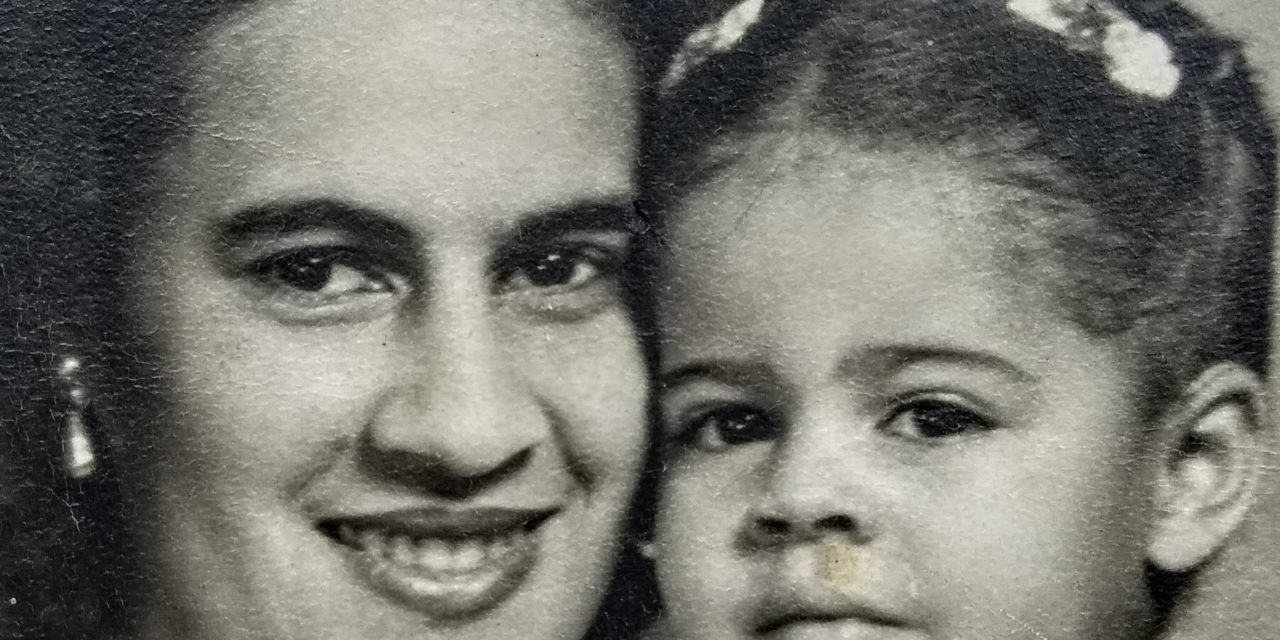“It’s come at last,” she thought, “the time when you can no longer stand between your children and heartache…. they walk right into the grief that you’d give your life to spare them from.” ~Betty Smith
Babs stands on her porch, in the early fall light. She’s small and slender, with dark hair swept back from her face. She’s far from home. Far from everyone she knows except her husband and three year-old daughter.
She looks up at the sky. Its soft blue seems faded. So different from the island’s turquoise. Days of fever and sore throat have given way to an aching stiffness in her back and legs. Worry for her daughter and husband grips her.
Without thinking, she makes the sign of the cross over her heart.
She’s not Catholic, but the sign has power. Her gesture draws the eyes of her neighbors, two elderly sisters out on their porch, enjoying the warm October day. These ladies provided shelter and kindness to the young couple, fresh from the islands, and continue to keep a watchful eye.
The sisters glance at each other as if to say, Something’s not right…
Good thing they noticed. Because the next day, Babs is rushed to hospital. The sisters call the the local priest: “She looked troubled and kept rubbing her back and arms. When she tried to pick up her daughter, she doubled-over in pain. Please go see her Father, maybe you can help.”
Climbing the steps of the hospital that evening, Father Treacy’s mind is a blur – but one thing stands out.
A little girl, sitting on the hospital steps, playing with marbles. She has dark hair and smooth, sunlit skin. The colored glass catches the lamplight, tossing off blue and red sparks.
He pauses to pat her head. Then he bounds up the remaining steps and into the polio ward.
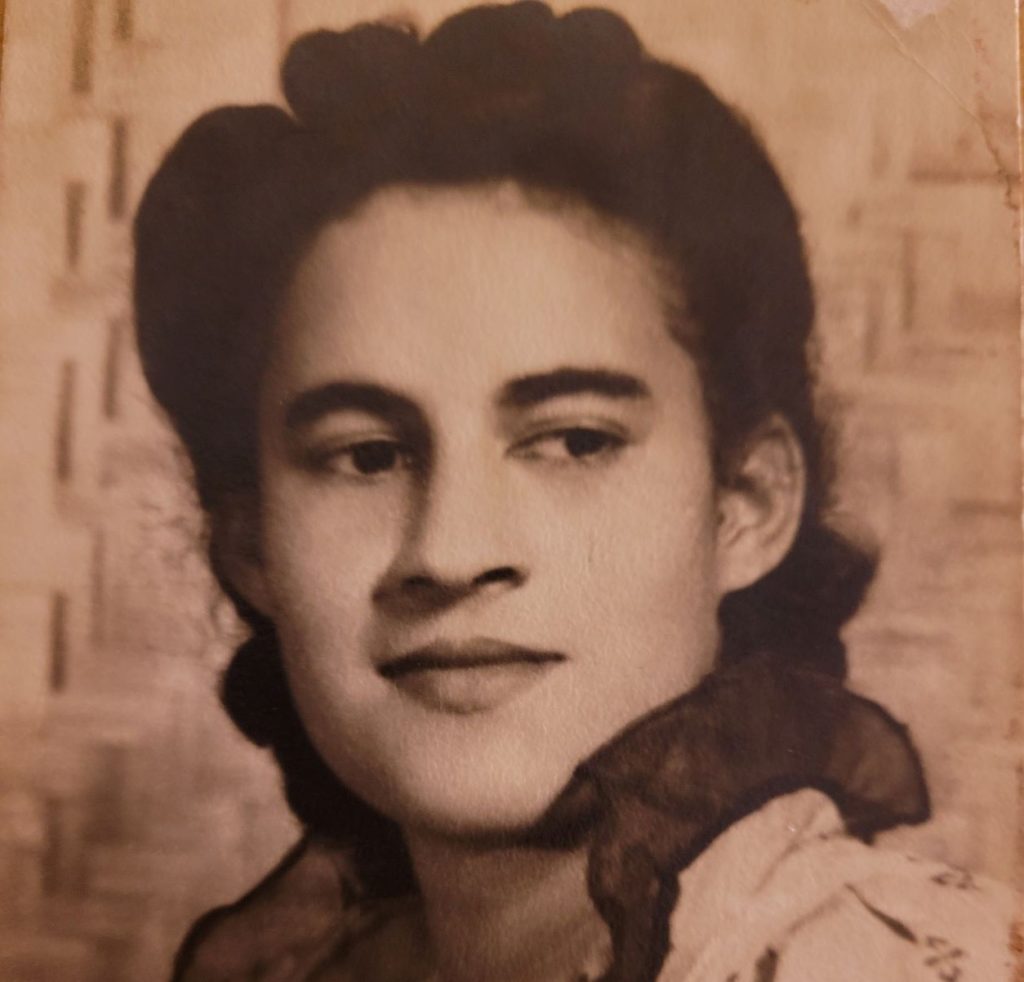
“It all started with an invitation from my son, Gary, to write my story,” says Elisa, sitting in a black leather armchair, her cropped silver hair reflecting the purple in her sweatshirt.
“I hadn’t been in touch with Father Treacy for years, but he’s the only one who had the information I needed. I called the Archdiocese, on the off-chance that someone would know his whereabouts. And amazingly, they had his number. I called, and he immediately knew who I was.
“I told him that I was looking for the date of my mother’s death and where she was buried. Without skipping beat, he gave me the year, the date, and the exact time.
“He had been called, in his words, by ‘spinster sisters’ that my Dad and Mom were renting an apartment from. They had seen her making the sign of the cross, and the next day she was rushed to hospital. Father Treacy was called to visit her.
“Seeing the gravity of her condition – she had contracted polio and was in an iron lung – Father Treacy consoled her and offered to give her the last rites. She wasn’t Catholic, but said she would talk it over with her husband. Father Treacy offered to come back the next morning to see her again.
“The next morning, he was preparing to go see her at 9 o’clock, when he had a strong urge to call the hospital. He did – and the nurses told him she had just passed. She was only twenty-two…
“I asked him, ‘How could you possibly remember all these details, 58 years later?’ And his response was:
‘I will never forget your mother. She was the most beautiful soul I have ever met.’
“Then he said, ‘I think you should come to Seattle, to visit her grave. I think you will find healing there.’”
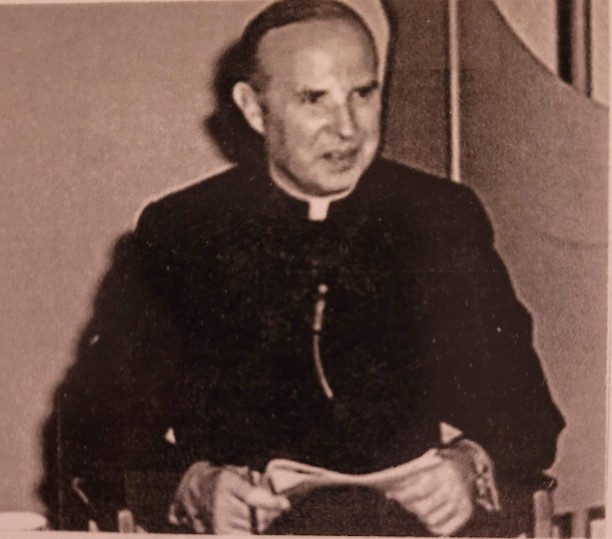
Elisa was three when her mother died of polio. Originally from Puerto Rico, the family had moved to Seattle for her father’s work. Just months later, in October 1948, Rona Martin de Negroni – known to friends and family as Babs – was gone, a casualty of the polio epidemic sweeping the U.S and other parts of the world.
Elisa soon went back to Jamaica, to live with her mother’s father and brother.
Babs remained a mystery, an angel rarely spoken of, except by an occasional aunt. Elisa’s father and grandfather, crushed by her death, couldn’t process her death by sharing memories. All Elisa knew were a few precious details: Babs was a pianist and played tennis competitively; she also wrote children’s stories.
“My mother was an entity I couldn’t grasp. She disappeared from my life at such a young age, I didn’t even understand that she had died. As I grew up, I knew she was a person who had given birth to me, but she wasn’t my mother – with all the meaning that word has. The only memory I have of her is back in Jamaica. I was sitting on the floor, and she at the piano. She started playing and I was mesmerized by the music flowing from her fingers.
“So when Father Treacy suggested a visit to my mother’s grave, I was taken aback.
“I never thought there would be anything healing about visiting her grave. But I wanted to meet him. So I said, ‘Ok, I’ll come.’ I didn’t even have the money, but with the help of a group of friends and Father Treacy, we had enough funds for both me and Ed [my husband] to fly to Seattle and stay in a hotel.”

They arrived in Seattle on a Tuesday afternoon. “I wouldn’t have made it through the trip without him,” Elisa laughs, remembering her husband’s role during the journey. “Ed was there for me, to express everything I was feeling and experiencing. He supported me.”
By the next morning, the sunshine that greeted them had melted into a pounding rain, uncommon even for Seattle. Struggling with umbrellas, they hurried to catch a bus and meet Father Treacy at St. James Cathedral by 10 a.m.
Elisa wasn’t sure where to find him. Searching the hallways and corridors, she came upon a slender man, framed by the dim light of the vestibule. More than half a century had passed since their first encounter: on the hospital steps. But Elisa felt instant recognition.
So did Father Treacy.
“Binkie?” he asked, referring to Elisa by her childhood nickname. He was slightly built, with thinning white hair and slim, animated hands. His oval face was marked with laughter and sorrow lines, a few age spots, and a huge, electric smile. But it was his eyes – like sun on water – that pierced Elisa.
“Ever since I knew you were coming, I imagined this moment,” Father Treacy said to Elisa, holding her hand in his. Sitting together on a pew in the sanctuary, he began recounting the story of her mother – as much as he knew.
Over lunch, they talked more about Babs, and got to know each other. As they drove through the old neighborhoods, Father Treacy pointed out where Elisa’s parents had lived, and the hospital, where their paths first crossed.
“You were so small and innocent, just sitting on the hospital steps, playing with your marbles. I will never lose sight of that memory.”
It was raining so hard, Elisa could barely see the Greek pillars and scattered headstones as the car curved up the driveway of Calvary Cemetery. Father Treacy pulled up outside the director’s office.
“Wait here, I just want to speak with the director quickly.”
Rain and wind billowed over the land, drenching the old trees and stone angels. When Father Treacy returned, they slowly drove to Babs’s gravesite. Under black umbrellas, three bodies huddled out of the car, squelching through wet grass to the unmarked grave.
Elisa’s father, Jaime, had not been able to afford a gravestone, or even a simple marker. The land for the grave had been donated too. Not only did the two “spinster sisters” rent an apartment to Elisa’s Mom and Dad. They also gave land – next to their own plots – for Babs’s burial.
What was this strong effect that Babs had on people? Elisa wondered. Creating such deep bonds with complete strangers?
After several moments of quiet remembrance, Father Treacy motioned to Ed – Let’s go sit in the car and give her a moment alone.
“So they did, and there I was. All of a sudden, I began to feel. We were connecting. She was there. We were present with each other…
“I was amazed because I had come just to please Father Treacy. I certainly didn’t imagine I would feel or sense anything. I had never felt this way before. Like she was real.”
Elisa wanted to stay and soak in this feeling a bit longer. But her delicate body was being lifted by the wind, her umbrella flapping ineffectually, soaked not only by spirit, but by a torrential downpour. She looked at the ground holding her mother’s body, then forced her way through the rain, back to the car and the two waiting men.
Returning to the cemetery office, Elisa and Ed went inside and waited while Father Treacy again disappeared, mumbling something about “asking a question.” This time, the couple was ushered into a small conference room, dominated by a simple Formica table. On the walls, newspaper clippings were framed with stories about notable community members – all buried at Calvary. There were also samples of granite and bronze, etched with different lettering.
Before long, the director came in. He was tall and slender, carrying a binder under one arm, which he placed on the table in front of Elisa.
“Father Treacy has generously purchased a gravestone for your mother. Please pick out the style and engraving you would like.”
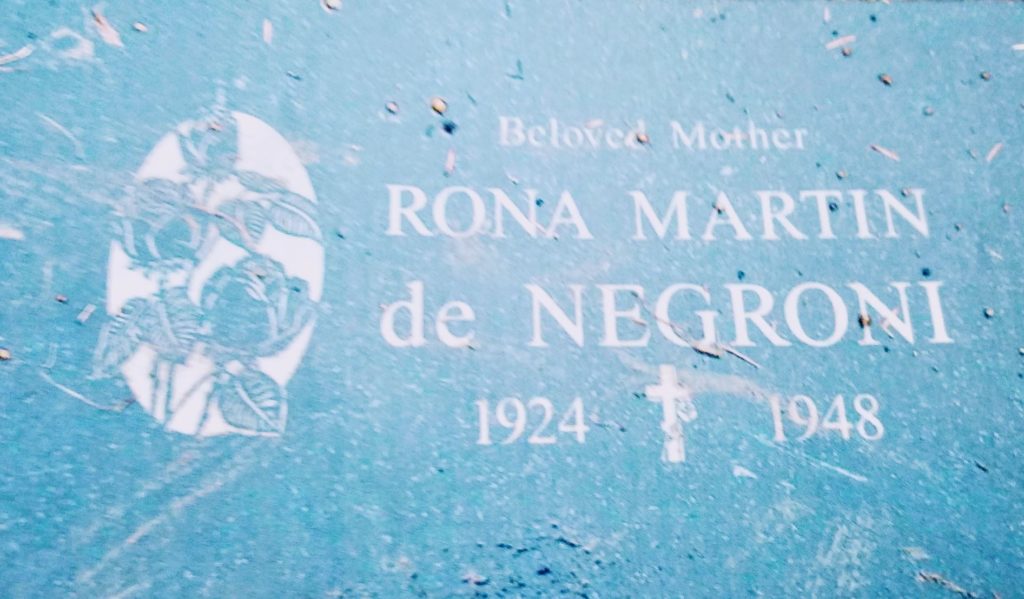
“All her life, I have watched her as though from another shore.” – Amy Tan
The heavy downpour lifted about an hour after Elisa and Ed returned to the hotel. So did the ocean of tears Elisa didn’t know she was carrying. The sun returned. Elisa felt scoured clean by the light, by her mother’s real, tangible life.
“I had found her. She was there, even when I didn’t know it.”
Before flying back to Nashville, Elisa and Ed took the elevator to the hotel’s rooftop deck, hoping for a glimpse of Mount Rainier.
For their entire trip, the snowcapped mountain had been covered in cloud. This evening, though, the summit shone clearly in the sunset, a deep red light touching all its shadows and crags.

by Elisa A. Negroni as told to Andréana Elise Lefton
Elisa is a Transformational Catalyst, Life Illuminator, and Certified Holistic Life Coach. She works with women and men who are afraid to be fully seen and heard. Through group circles and personalized coaching, her clients learn to reclaim and integrate all aspects of themselves, moving through their shadows, to courageously live and love with their whole heart.
